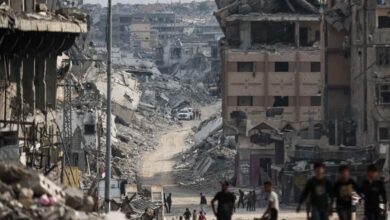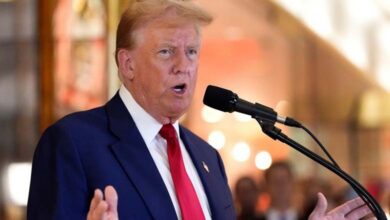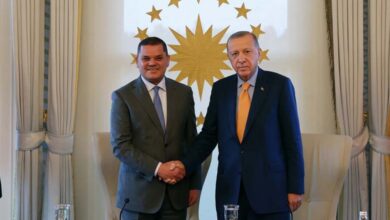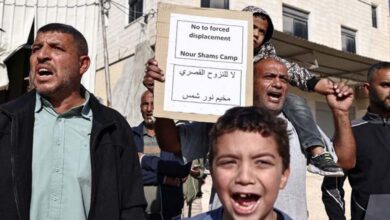Iran’s Nuclear Program Back in the Spotlight… and Trump Seeks Political Breakthrough
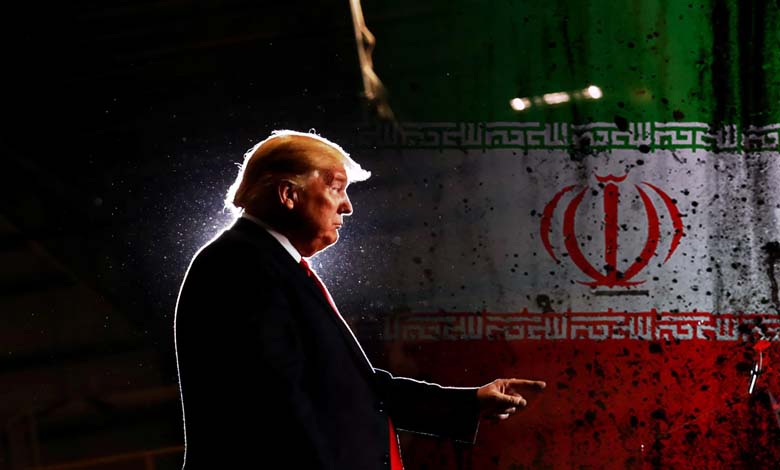
Unable to deliver on his campaign promises of quick peace in Gaza and Ukraine, U.S. President Donald Trump is turning to another major challenge: reining in Iran’s steadily advancing nuclear program.
His administration is planning a second round of talks with Iran on Saturday in Rome — a development few imagined, considering the long-standing animosity dating back to Trump’s first term, when he withdrew from the 2015 nuclear deal and pursued a “maximum pressure” policy through crippling sanctions.
-
Trump and Iran: 4 Possible Scenarios, Including “Shock and Awe”
-
Between Escalation and De-escalation: How Will Trump Handle Iran?
While no one rules out progress after a meeting in Oman earlier this week — described as positive by both sides — negotiators are keeping expectations low for any swift breakthrough in a decades-long dispute.
A source familiar with a Tuesday White House meeting said discussions over a potential nuclear framework agreement are still in the very early stages among Trump aides. Two other sources suggested a temporary deal may precede a more comprehensive one.
Trump’s repeated threats to bomb Iranian nuclear sites if no deal is reached are escalating regional tensions surrounding this diplomatic effort.
-
Trump’s Return Pushes European Powers to Demand Increased Pressure on Iran
-
Iran Keeps Door Open for Dialogue with Trump and Prepares for New Sanctions
This could mean that Trump — who vowed in his January 20 inauguration speech to be a “peacemaker” — might instead lead the U.S. into another Middle East conflict.
On Thursday, Trump said he wasn’t in a hurry to strike Iran and reiterated that negotiations are his first option. At a White House meeting with Italian Prime Minister Giorgia Meloni, he said, “If there’s a second option, I think it would be very bad for Iran. I think Iran wants to talk. I hope they do. It would be very good for them if they do.”
Leading the U.S. negotiating team is Steve Witkoff, a Trump confidant and real estate investor with no prior diplomatic experience, whom some analysts dub the administration’s “envoy for everything.” He is tasked with negotiating a deal with Iran, alongside trying to end the wars in Gaza and Ukraine.
-
Washington Conditions Any New Nuclear Deal with Iran on Enrichment Oversight
-
Afrikaners between the Dream of Staying and Trump’s Temptations: A Struggle between Identity and Reality
Across the table sits Iranian Foreign Minister Abbas Araqchi, a seasoned negotiator whom some Western diplomats fear might exploit Witkoff’s lack of experience.
Jonathan Panikoff, former U.S. intelligence official for Middle East affairs, said, “Balancing Gaza, Ukraine, and Iran is a cognitive challenge for anyone.” Now with the Atlantic Council, he added that this is especially true for Iran given the technical, historical, geopolitical, and regional complexities involved.
Witkoff does, however, have a unique strength: a direct line to Trump, which may signal to Iranians that he’s conveying the president’s views personally.
Only time will tell if this actually helps the administration’s efforts to seal a deal.
Uncertainty
Witkoff’s recent remarks have added confusion to Trump’s brinkmanship strategy toward Iran.
Before last Saturday’s talks, he told the Wall Street Journal that the “red line” would be Iran weaponizing its nuclear program — seemingly backtracking from Trump’s initial demand for total dismantlement.
He then told Fox News on Monday night that Iran might be allowed to enrich uranium at low levels, with strict verification measures — only to appear to walk that back on Tuesday by saying on X that Iran must “get rid of” its enrichment program.
-
Tehran Ready for Indirect Talks with Washington in Response to Trump’s Letter
-
Khamenei, Iran’s Illness and the Obstacle to Any Agreement with Washington
Araqchi responded Wednesday, saying “the principle of enrichment is non-negotiable.”
Severe sanctions seem to have helped push Iran — an OPEC member — back to the negotiating table. Yet Tehran, which has consistently denied Western and Israeli accusations of seeking nuclear weapons, remains cautious and skeptical of Trump and the prospects for any agreement.
Since Trump’s first-term withdrawal from the 2015 deal, Iran has greatly exceeded the limits on uranium enrichment, building a stockpile near weapons-grade purity.
Mixed Diplomatic Record
-
Iran Reshuffles Its Proxies in Yemen and Iraq amid U.S. Strikes
-
The Week of Reckoning in America… Trump’s Loyalty Philosophy under Scrutiny
Trump’s surprise April 7 announcement on resuming talks with Iran has highlighted Witkoff’s central role in foreign policy.
His track record is mixed. He failed to broker a deal between Russia and Ukraine, who have been at war since 2022. But shortly before Trump took office, he helped reach a long-awaited ceasefire in Gaza between Israel and Hamas — an agreement that later collapsed.
Potential U.S. or Israeli military action keeps the Middle East on edge. Since Hamas’s October 7, 2023, attack, Israel has significantly weakened Iran’s regional influence and proven it can strike Iranian nuclear facilities.
-
Drill or Disengagement? Has Iran Abandoned Its Regional Arms?
-
Trump Gives Iran Two Months to Negotiate a New Nuclear Deal
Caught off guard by Trump’s decision to negotiate, Israeli Prime Minister Benjamin Netanyahu called for a Libya-style 2003 disarmament deal — something Tehran is highly unlikely to accept.
Some analysts argue that despite the immense hurdles, a bilateral U.S.-Iran deal may be more attainable for Trump than lasting peace in Gaza or Ukraine.
Laura Blumenfeld, Middle East analyst at Johns Hopkins, noted, “With a nuclear deal, the U.S. can exert a degree of control,” adding that both parties are “ready and eager to end nuclear tensions.”




